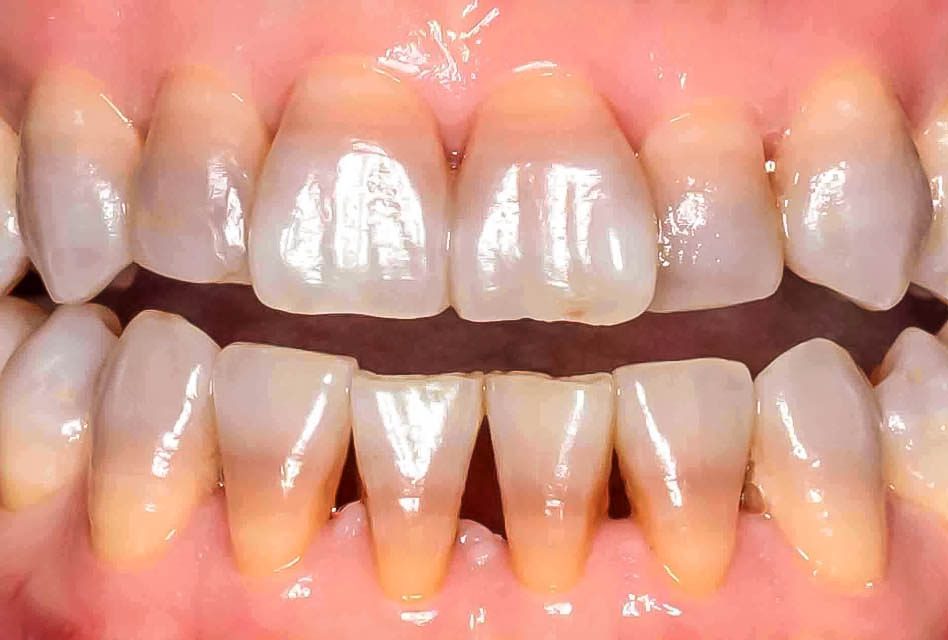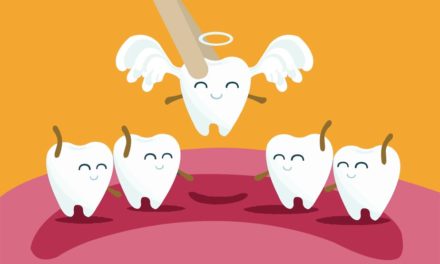The relation between drugs and the colour of teeth can be of concern because some people worry that taking antibiotics such as tetracycline might make their teeth dark and greyish. But does taking such antibiotics at any age affect the colour of your teeth?
Tetracyclines are a group of antibiotics that may be used against a wide range of disease-causing bacteria. Drugs such as doxycycline and minocycline are also included in the tetracycline family. Their main use is to treat acne. Other uses of tetracycline are the treatment of infections of the respiratory tract, sinuses, intestines, gums, ears, urinary tract, and also gonorrhoea.
Tetracyclines are antibiotics that may affect the colour of teeth and bone during their development only. Primary teeth (or deciduous teeth) go through their development when the mother is still carrying her baby in her uterus. Permanent teeth (or adult teeth) are developed during childhood, when the infant still has his primary teeth in his mouth.
Tetracyclines should therefore be avoided in pregnant or lactating women, and in young children with developing teeth. A pregnant woman who takes tetracycline might cause stains to the deciduous teeth of her baby. A child who takes tetracycline might cause stains to his developing adult teeth. Those stains are usually internal and cannot be easily removed with conventional tooth whitening. It is therefore recommended not to give tetracycline to children under 12 years of age. They are however safe to use in the first 18 weeks of pregnancy.
Even though tetracyclines cause tooth discolouration for only developing teeth, they are considered very safe for adults, including women who are not pregnant. The tetracycline group is the only family of antibiotics that can stain developing teeth. All other antibiotics are not known to discolour teeth.
The information above should be used as a reference only. Any medical decision should not be taken before consulting a health care professional.
The masculine gender may have been more used in the article, but without prejudice, to make reading easier.
Category: questions and answers
- Are dental x-rays safe for pregnant women?
- Are teeth alive?
- At what age do children’s teeth start coming out?
- Can an abscess cause a tooth to break apart?
- Can dry mouth be harmful?
- Can heart disease be related to dental care?
- Can teeth grinding affect children?
- Can wisdom teeth move other teeth?
- Can you drink alcohol after tooth extraction?
- Do you have to remove retainers or orthodontic appliances when you eat?
- Does chewing gum after a meal help eliminating dental plaque?
- Does chewing gum eliminate bad breath?
- For which sports should you use a mouthguard?
- How can smokers take care of their oral health?
- How can you get rid of a tooth abscess?
- How can you get rid of an ulcer or a canker sore on your tongue?
- How can you prevent a tooth abscess?
- How can you reduce the effects of dry mouth?
- How can you tell if you have a tooth abscess?
- How can you tell that you are grinding your teeth?
- How can you tell that you have dry mouth?
- How can you treat a tooth abscess?
- How can you treat dry mouth?
- How can you treat teeth grinding?
- How does smoking affect oral health?
- How does smoking affect overall health?
- How is infective endocarditis related to oral health?
- How long does it bleed after wisdom teeth extraction?
- How long does the numbing last after a dentist appointment?
- How many teeth are there in the mouth?
- How soon after tooth extraction can you use a straw?
- How thin are dental veneers?
- Is a root canal painful?
- Is amalgam in teeth (grey fillings) bad for your health?
- Is it necessary to place a dental crown on a tooth that had a root canal?
- Is it normal for gums to bleed when you brush your teeth?
- Is it painful to place a dental implant in your mouth?
- Is smoking bad for your teeth?
- Is there a relationship between dental problems and overall health problems?
- Should people that had a heart attack take precautions when undergoing dental treatments?
- Should people that have a pacemaker take special precautions with their dental care?
- Should people that have had coronary artery bypass surgery take special precautions with their dental care?
- Should people that suffer from congestive heart failure take special precautions with their dental care?
- Should people with angina take precautions when undergoing dental treatments?
- Should people with high blood pressure take precautions when undergoing dental treatments?
- What are the advantages of silver fillings?
- What are the symptoms of having a tooth abscess?
- What can you eat after wisdom teeth extraction?
- What diseases might cause you to have dry mouth?
- What lasts longer, grey or white fillings?
- What may happen if you don’t treat a cavity?
- What might cause you to grind your teeth?
- What might happen if you don’t treat a tooth abscess?
- When can you eat and drink after a tooth filling?
- When can you play sports after wisdom teeth surgery?
- When can you smoke after a tooth extraction?
- When do dissolvable stitches fall out after wisdom teeth extraction?
- Where does a tooth go after extraction?
- Which is better retainers or braces?
- Why are wisdom teeth called “wisdom teeth”?
- Why is teeth-grinding bad for you?
- Why you should not smoke after tooth extraction?
- Will taking antibiotics make the colour of your teeth darker?






Need to know as soon as possible please. I’d it ok to drink alcohol drink for mothers day. A day ahead after 2 to 3 days after having teeth and wisdom teeth pulled it still opened some. But not Al the way open.
Hello Sarah,
If you passed 1 day after your teeth extraction, and you are not taking any medication (analgesic, anti-inflammatory or antibiotic), then it is ok to drink alcohol in moderation. Happy Mother’s Day!